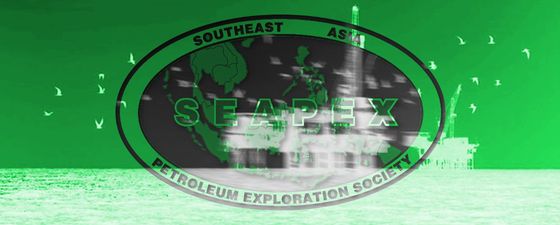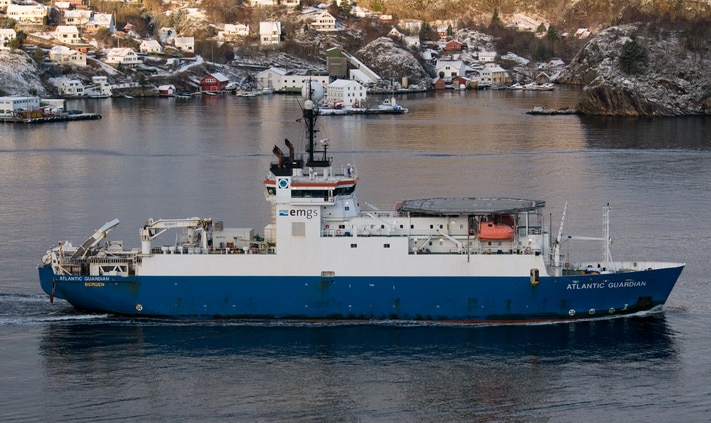45 years old and counting, SEAPEX has a proud history of supporting the oil and gas industry in South East Asia
South East Asia has been engaged in oil and gas production since before the beginning of the last century, initially in Indonesia and soon followed by Myanmar and Brunei. With the advent of offshore drilling, Malaysia came into the picture, with production later starting up in Thailand, Vietnam and the Philippines. Traditionally, the focus of the region has been on oil production, but there has been a constant, strong growth in gas production since the beginning of the 70s.
The South East Asia Petroleum Exploration Society, SEAPEX, which has a sphere of interest spanning from Afghanistan to New Zealand, was set up to look after the interests of oil and gas geoscience professionals in this region. Its objectives include advancing the science of geology and related earth sciences, with particular emphasis on petroleum and natural gas exploration, development and production in South East Asia, and promoting technologies related to exploring for hydrocarbons, as well as disseminating information on the topic. SEAPEX also aims to improve the awareness of oil and gas industry issues in the community.
Currently the group, which is based in Singapore, has over 1,000 active members and a number of Chapters which host regular meetings throughout the world, including London, Houston, Calgary, Ho Chi Minh, Manila, Perth, Kuala Lumpur, Bangkok, Jakarta, Tokyo and Auckland. The group prides itself on the social and networking side of the business as well as technical and industry intelligence. It is a non-profit organization.
Map of SEAPEX regional chapters.
Silver Years
SEAPEX is now over 45 years old. As described in Dick Murphy’s account of the history of the organization, Silver Years, the “arrival of Allen Hatley and Frank Sonnenberg to Singapore in 1972 provided the impetus for the formation of SEAPEX. Both were old hands in the oil patch, both were articulate, and both recognized that the time was ripe for a professional society, based in Singapore, that would serve as a forum for the explosion of geological and geophysical knowledge resulting from the booming search for hydrocarbons in the South East Asia region.” Their interest merged with that of Dick Murphy’s, who was the President of the Geological Society of Malaysia (GSM) at the time and working for Esso. Eventually, after Frank, the first president, had been transferred and Allen, the second, was about to leave, Dick become President.
Recognition of Dick Murphy’s contribution to SEAPEX has been made through the ‘Dick Murphy Scholarship Award’. Now in its sixth year, this aims through SEAPEX to promote petroleum geoscience expertise in South East Asia. It is awarded to a South East Asia national (i.e. from Singapore, Malaysia, Indonesia, Thailand, Vietnam, Philippines, Brunei, Cambodia, Laos or Myanmar) in order to help with the cost of studying for a Master’s degree in petroleum geosciences.
Membership over the years has fluctuated due to oil price, interest in the region and the movement of companies in and out of Singapore. They would often set up a regional new ventures hub in Singapore to look at opportunities and once they had established acreage in a country they would move their team there. The only company to have kept a presence in Singapore over the last three decades is Total, which has been particularly successful in the region.
After some boom times in the 1970s and 1980s the society went into a hole in the early 1990s but after some digging by the committee (and others), SEAPEX eventually ‘rose from the dead’, so to speak. The decision to run the evening meetings on the same day as the Singapore Scout Meetings (a regular gathering of upstream oil and gas operators in the Asia-Pacific region who meet to share accurate information about their E&P activities in the region) was the turning point for SEAPEX, with numbers growing significantly. The second Friday of every other month proved an important date for networking in the region, and soon the Thursday night and weekend became part of the agenda. Early birds now meet in Penny Black pub on Boat Quay on Thursdays ahead of the main Friday events.
Active Society
Current SEAPEX President Ian Cross on a recent visit to Vietnam.
Since its formation SEAPEX has had 24 presidents, the current one being Ian Cross, who started his role in October 2016, taking over from Peter Baillie. Ian actually began his time on the SEAPEX committee as far back as 1990 and has been almost ever-present in the society since then. He is quoted as saying he felt like Ryan Giggs becoming manager of Manchester United when he became President after all his years of apprenticeship! According to SEAPEX records the longest continual reign as President was John Bishop, from 1991 to 1997. Both Ian and John are also among the 19 who hold Honorary Life Membership, an award given by SEAPEX to individuals in recognition of their outstanding contributions to the organization and the oil and gas industry in the South East Asia region.
Each year SEAPEX allocates a portion of its budget to support educational, philanthropic and other causes and activities that advance the objectives of the society. In addition to the Dick Murphy scholarship, this helps fund field trips, gives support for conferences and allows invited speakers to give lectures at meetings.
SEAPEX publishes a quarterly news and views magazine, called the SEAPEX Press, which is distributed worldwide to members. This has been running since December 1997 and had its beginnings in a photocopied four-page newsletter. A competition was held to provide the name of the periodical, with a prize of a six-pack of beer! The SEAPEX Press rapidly went from 16 to 32 pages, and soon Mark Harris took over as Editor, a role which he still holds. After some 20 years in print it will go digital in 2017, which will undoubtedly stress some of the older members!
The London group hosted a large meeting the evening before APPEX this year as a prelude to the much-awaited bi-annual SEAPEX Exploration Conference in Singapore. This will be held on April 26–28, 2017, and dates have already been set for the next event in 2019. The society is also looking at running a joint Asia-Pacific event with the PESGB in mid-2018 in London.





